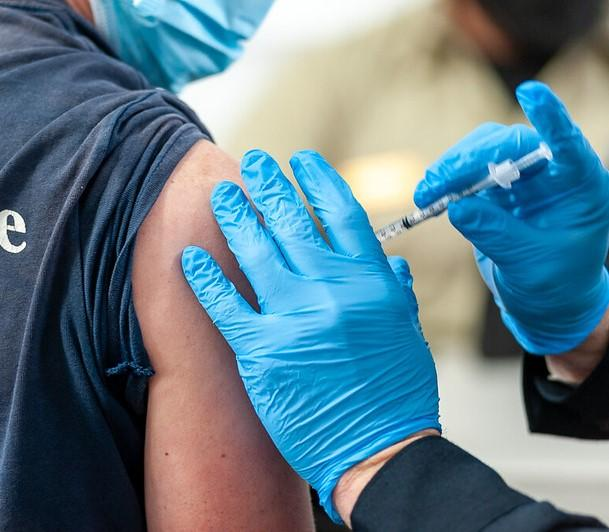A meta-analysis today in Antimicrobial Stewardship & Healthcare Epidemiology estimates a vaccine effectiveness (VE) of 69% for three doses of COVID-19 vaccine against long COVID, while two doses offer 37% efficacy.
Led by researchers at the University of Iowa, the meta-analysis involved 24 studies on COVID-19 VE against long COVID among recipients of at least two doses of a vaccine before or after infection from December 2019 to June 2023.
"With the ongoing COVID-19 pandemic, a considerable proportion of individuals who have recovered from COVID-19 infection have long-term symptoms involving multiple organs and systems," the researchers wrote.
Much lower long-COVID prevalence among vaccinated
The pooled prevalence of long COVID was 11.8% among unvaccinated participants and 5.3% among recipients of at least two vaccine doses.
"The present systematic review showed a relatively low prevalence of post-COVID conditions," the study authors wrote. "This is likely because most individuals included in our studies were non-hospitalized individuals and we are presently in the Omicron variant era. Previous studies suggested that the Delta and Omicron variants caused less systemic inflammatory processes, severe illness, or death, resulting in less severe long COVID symptom symptoms than the wild-type variant (Wuhan)."
The VE of fully vaccinated individuals against post-COVID conditions was not high at approximately 30%; however, the prevalence of post-COVID conditions was lower with a statistically significant difference in fully vaccinated individuals.
The pooled diagnostic odds ratio (DOR) for long COVID among two-dose recipients was 0.680, for an estimated VE of 32.0% (95% confidence interval [CI], 11.5% to 47.7%). VE was 36.9% (95% CI, 23.1% to 48.2%) among those who received two doses of vaccine before COVID-19 infection and 68.7% (95% CI, 64.7% to 72.2%) among those who received three doses before infection.
The most commonly reported symptoms were fatigue or muscle weakness, muscle pain, anxiety, memory problems, sleep problems, and shortness of breath.
Booster dose increased efficacy
"The VE of fully vaccinated individuals against post-COVID conditions was not high at approximately 30%; however, the prevalence of post-COVID conditions was lower with a statistically significant difference in fully vaccinated individuals," the study authors wrote.
The stratified analysis showed no protection against long COVID among those vaccinated after infection. "The stratified analysis showed a significant reduction in post-COVID conditions during the Omicron variant era, and the vaccine should be offered to unvaccinated individuals who have not had COVID-19 yet," they wrote.
The investigators called for a standardized definition of long COVID, which is currently lacking, to improve clinical care and enable research on the true prevalence among vaccinated and unvaccinated people and the VE against persistent symptoms. They also urged more observational studies on the VE of the bivalent (two-strain) COVID-19 vaccine, vaccination after COVID-19 infection, VE of a second booster dose and of mixed-vaccine strategies, and genomic surveillance.
"Receiving a complete COVID-19 vaccination prior to contracting the virus resulted in a significant reduction in post-COVID conditions throughout the study period, including during the Omicron era," the researchers wrote. "Vaccine effectiveness demonstrated an increase when supplementary doses were administered."

















